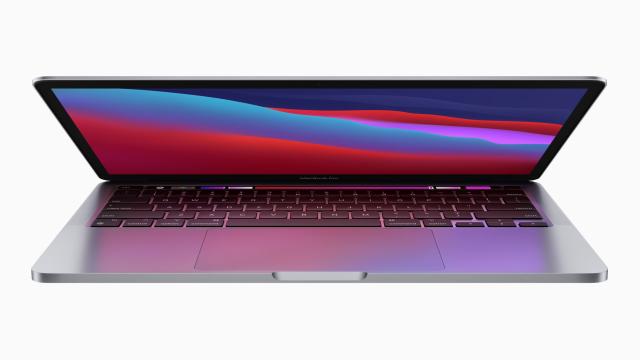When Apple announced macOS Big Sur earlier this year with its big iOS-inspired icons, revamped menus, and its own version of Control Centre, I along with a lot of other folks thought for sure that Apple’s next macOS update was paving the way for the long-awaited arrival of a touchscreen MacBook. However, according to Apple’s Craig Federighi, who oversees the company’s software, that’s simply not the case.
In a recent interview with the Independent, Federighi and Apple marketing chief Greg Joswiak shed some light on the development of macOS Big Sur and Apple’s recently announced ARM-based M1 chip. However, among impressive claims regarding the new M1 chip’s performance and info about the challenges of transitioning to a new CPU architecture, one thing that really stuck out was Federighi’s reaction to speculation about a potential touch-based MacBook.
Federighi said: “I gotta tell you when we released Big Sur, and these articles started coming out saying, ‘Oh my God, look, Apple is preparing for touch’. I was thinking like, ‘Whoa, why?’ We had designed and evolved the look for macOS in a way that felt most comfortable and natural to us, not remotely considering something about touch.”
[referenced id=”1528067″ url=”https://gizmodo.com.au/2020/11/this-is-apples-new-fan-free-macbook-air/” thumb=”https://gizmodo.com.au/wp-content/uploads/2020/11/11/os1dhbrtn5qmocmybkui-300×169.png” title=”This Is Apple’s New Fan-Free MacBook Air” excerpt=”Back at WWDC 2020, Apple announced its big plan to transition all of its computer over to custom-designed ARM-based processors, and now Apple is finally ready to announce its first batch of systems using those chips starting with this: the new MacBook Air with M1. M1 Macbook Air Sporting the…”]
Federighi then added that while the look and design of macOS Big Sur was inspired by iOS and iPadOS, it was more an inherited connection than a deliberate attempt to bring touch input to macOS.
“It’s just they all feel like the natural instantiation of the experience for that device,” he said. “And that’s what you’re seeing, not some signalling of a future change in input methods.”
If we take Federighi at his word and assume he didn’t have his fingers crossed behind his back or that he was winking while he said that, those statements imply that a MacBook with a touchscreen isn’t anywhere on Apple’s horizon, which from where I’m sitting is somewhat perplexing.
[referenced id=”1528056″ url=”https://gizmodo.com.au/2020/11/finally-apple-is-dropping-macos-big-sur-november-12/” thumb=”https://gizmodo.com.au/wp-content/uploads/2020/11/11/xezyvpduforzcyeuceie-300×169.jpg” title=”Finally! Apple Is Dropping macOS Big Sur November 12″ excerpt=”Back at WWDC this summer, Apple teased one of the biggest updates to macOS since it moved to Unix with Mac OS X, and almost six months later, the update is finally upon us.”]
With Big Sur not only sporting what looks to be a much more touch-friendly interface and new support for iOS and iPadOS apps, continuing to divide Apple’s computing lineup between products that support touch (iPhones and iPads) and those that don’t (Macs) seems like a very strange line to draw in the sand — especially when you consider that a lot of the mobile games that will be ported from iPhones to Macs were originally created to be played on touchscreen devices.
Touchscreens aside, another strange omission from Apple’s new MacBooks is the lack of optional cellular connectivity (either 4G or 5G). Now it’s true that during The Great Quarantine, a laptop with a built-in cellular modem may not have the same appeal it once did. However, it’s still kind of wild to think that Apple is one of the only major notebook manufactures that doesn’t offer a single laptop with a 4G or 5G connection. For that you’d have to make a side-grade to an iPad or iPad Pro.
But considering the difficulty of transitioning all of its computers from x86-based Intel processors to Apple-designed silicon over the next two years, adding touchscreens to MacBooks may have simply been too much to ask for. Maybe, hopefully, Apple can get around to it some day.
